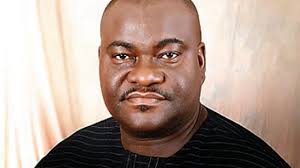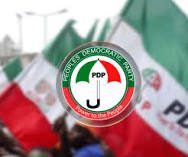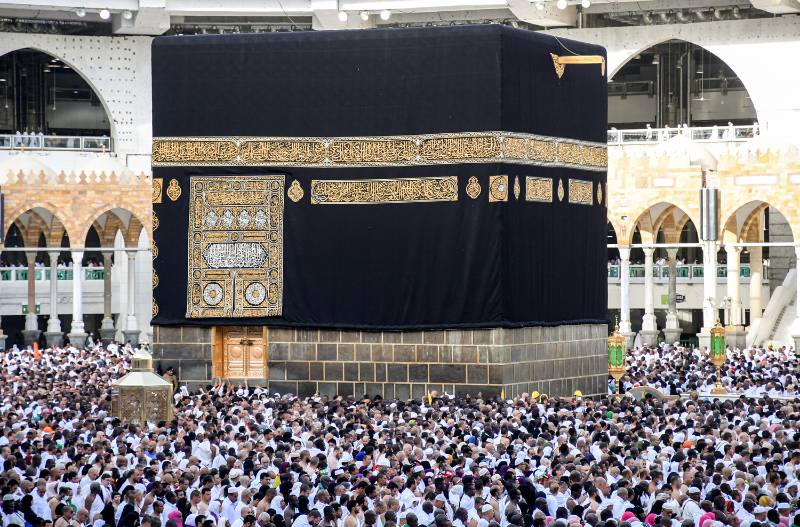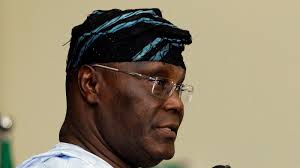By Tunde Olusunle
All through the past two decades and half of following the trajectory of former President Goodluck Jonathan, I’ve come to identify him as a gentleman par excellence. He rapidly overcame his erstwhile provincial naivete, to become the national leader and global statesman he is today, with his signature bowler hat, an integral component of men’s regalia in his seaward section of the country. His widely ventilated pre-2015 presidential election statement that his election was “not worth the blood of any Nigerian,” catapulted his rating into the global sky. This pronouncement, coming shortly after his successor, Muhammadu Buhari had threatened that “the dog and the baboon will be soaked in blood” if he didn’t win the polls, spontaneously endeared Jonathan to the international community. Indeed, leaders like Nasir El Rufai, once promised that “foreign observers may return to their home countries in body bags,” if their reportage of the polls, stood in the way of the victory of the All Progressives Congress, (APC), Buhari’s party.
Jonathan’s recent reminisces on the manner of his administration’s resolution of an industrial strike embarked upon by the Academic Staff Union of Universities, (ASUU), particularly caught my attention. Alluding to the subsisting seven-month impasse between the Buhari administration and ASUU, Jonathan recalled an experience when he was president. He sat through the night on one occasion on one side of the negotiation table with his own officials, while the ASUU team were on the opposite side, trying to resolve a similar debacle. There were agreements in some places, and dissent elsewhere; consensus here, ground-shifting there, until both sides agreed to what was a win-win situation. On that very occasion, Jonathan observed that the meeting which began the preceding evening, ended at 5.30am next day!

The former president may not have said it in plain language, but he was pointedly admonishing Buhari to dispense with outsourcing the responsibility for the settlement of the lingering ASUU debacle and take full charge, personally. As a longserving, proximal aide to former President Olusegun Obasanjo, I know for a fact that Jonathan in that instance adopted a conflict mitigation recipe, emplaced by the former president. If he were allowed, Obasanjo will work round the clock, restrained only by his minders. He travelled with his briefcase of documents, ever deploying his “green ink” on the road, ensuring there was no lacuna in the governance regimen. And this is where I have a problem with Jonathan.
Was it not the same Buhari who criticised Jonathan for initiating the “National Conference” in 2014, which aggregated Nigerians of various persuasions to discuss the national question? This same Buhari lampooned Jonathan for expending N7 Billion on remuneration for participants at the conference. Like we are experiencing today, university lecturers were on strike and Buhari opined that the N7 Billion in question should have been deployed to settling the fiscal demands of the dissenting teachers. Why should Jonathan be availing him nuggets from his own practical experiences?
The Buhari being counselled by Jonathan by the way, is in New York for the United Nations General Assembly, (UNGA). It will be Buhari’s last appearance at the annual event and he was not going to miss this opportunity for valedictory photo-ops at the largest assembly for world leaders. He took with him his chief of staff, Ibrahim Agboola Gambari, a former Under-Secretary of the UN. Vice President Yemi Osinbajo was in England at the same time participating in the final rites of passage of Queen Elizabeth II. The presidential villa could jolly well be on holiday for one week or more, depending on how long it takes for the president to get back. The absence of the first two citizens from the country at a time Nigerian students blockaded the international airport, re-echoed the nation’s experiences under military rulership, years gone by. Those days, martial adventurists might have been tempted to tinker with the system, in such a leadership void. The message to this effect may then be conveyed to our leaders in New York and London respectively.
That was how the July 1975 Yakubu Gowon saga was whispered to him in Kampala, Uganda, where he was attending a meeting of the Organisation of African Unity, (OAU), now African Union, (AU). The inability of Buhari’s administration to remedy a strike action called by university teachers, the recourse of students to the streets, crippling hunger, festering insecurity, economic dysfunction, will feature in the coup speech. The speech will most probably highlight Buhari’s frequent medical tours abroad and allude to the frequency of his foreign trips, especially when there are pressing matters of state.
Buhari may not know this. But Osinbajo a distinguished professor of law and Senior Advocate of Nigeria, (SAN), who taught for decades within the university environment, fully understands the dire implications of the lingering strike. Historically, Nigeria has been the epicentre of knowledge production for sub-saharan Africa. We attracted some of the very best brains from across the world to our educational system. They collaborated with our own globally acclaimed academics, to nurture generations of highly literate and skilled scholars and professionals, consistent with the concept of the university as universitas. We also exported excess quotas from our brimming reservoir of highly groomed and grilled manpower to brother African countries, all the way to the Caribbeans. The Technical Aid Corps, (TAC) initiative of the Ibrahim Babangida administration readily comes to mind.
As we speak, however, the traffic is more outbound than inbound. Nigerian professors across specialties, medics, information technology specialists and so on, are emigrating in droves. A very popular television advertisement in Buhari’s days as military head of state, forever admonished an imaginary character called “Andrew” not to exit Nigeria. It was a milieu of excruciating socioeconomic anguish for the country and people spared no chance to explore greener pastures on the other side. “Andrew,” however, was implored to stay back and contribute to national reengineering. Three decades after Buhari’s first coming, the japa (take flight) syndrome has replaced the “Andrew” concept. It is very real. Newspapers have serially availed us front page photographs of Nigerians queuing up at various embassies and high commissions, notably those of the United States, the United Kingdom and Canada, in recent weeks. In our various families and concentric circles of friends and associates, many people have jettisoned Buhari’s Nigeria.
Even amongst the students, there is now general lack of enthusiasm in education and scholarship, if all that young Nigerians are sure about after graduation, is just the one year National Youth Service Corps, (NYSC). The desire of many to pursue postgraduate studies to enhance their employability has waned tremendously. The impasse has also exposed the low perception the government has for education. A country which intends to continue the development of skilled manpower to drive its socioeconomy, will go beyond the inept handling of the ASUU strike thus far.
A government cognizant of the place of literacy and education in the achievement of national goals will not treat this all-important knowledge production industry, with the manner of levity and condescension the Buhari regime has. Jonathan is asking for too much from a president who has barely exerted himself either physically or mentally, in the business of governance and administration, since his inauguration on May 29, 2015. He wants to place the old man on “high jump,” to deploy an expression popular in military circles, which translates as imposing an unattainable task on one who is evidently incapable.
We hear the Chief of Staff, (COS) to Jonathan, invented the tradition of being the ultimate gatekeeper of all the president’s documents. He reportedly decided which correspondences should be passed on to the boss and which should not. The late Abba Kyari ostensibly inherited and proceeded with this practice. Unfortunately, the system which subsists even till today, is a dangerous departure from the Obasanjo tradition of depth and thoroughness. We had a hands-on president in love with paperwork, who received and processed all mails addressed to him. He made comments, observations and corrections on virtually every page of documents passed to him. He offered guidance and gave directives as the case may be.
It is either we are sustaining the novel culture of the overindulgence of a president who gets virtually everything done for him, or witnessing an obvious lack of capacity. This may determine the magnitude of the application and rigour he exerts in official superintendence. Except for the recent presidential primary held in “Eagle Square,” Abuja, I cannot remember the last time Buhari sat through an event which spilled past midnight. Retreats, workshops, and meetings with various ministries, departments and agencies, as well as engagements with the leadership and stakeholders of the ruling party at different intersections during Obasanjo’s era, were taken very seriously.
Scheduled and impromptu meetings of the AU, the Economic Community of West African States, (ECOWAS) or the Gulf of Guinea states, were ever plausible. Mediations between bickering nations or their leaders, threats of confrontations between countries, often stretched till dawn. The askance indifference, the lack of grit with which the business of leadership has been taken in this government, however, is remarkable. Sometimes one wonders if Buhari is just on a safari cruise at our collective expense.
Buhari is very surely oblivious of the various strands of the nation’s economy, that are tied to the smooth functioning of our universities, all collectively crippled by the yet unresolved impasse. In recent years, I’ve come to appreciate a point made by the legal luminary, Bayo Ojo, SAN, who once enlightened me that the socioeconomic transformation which a tertiary institution can bring to bear on a community or city, is immeasurable. On that occasion, the former attorney-general and minister of justice, had requested me to compare the level of development in Offa, Kwara State, before the establishment of the Federal Polytechnic, Offa, Kwara State, and what has become of the town in recent years.
On a trip to Ilorin the Kwara State capital in 2017, I decided to visit the permanent site of my alma mater, the University of Ilorin, (Unilorin). My generation of students schooled at what then was the “mini-campus,” the primordial physical location of the university which has been rapidly overrun by urbanization. That was where I obtained my first two degrees in English and Literature, taught and mentored by world class intellectuals. My good friend and brother, Segun Sobogun, took me on what was to become an extensive tour of an expansive, alluring, well-planned community. I decided to make the school my case study. The student population in the institution today has scaled the 50,000 mark. By the requirements of the Independent National Electoral Commission, (INEC) this number qualifies to have about 10 polling units.
Today’s campus of Unilorin has spawned an avalanche of service providers who live-off a functioning, operational institution. Sobogun my friend is one of many landlords who owns and leases his purpose-built hostel within the external precincts of the university. There are food vendors, operators of bars and lounges, outfits rendering a wide range of secretarial services and bookshops, among others. There are banks, shuttle services to move people around the infinite span of the campus which encompasses three local government areas in Kwara State. There are hair salons and boutiques, not forgetting tourist attractions like the man-made lake and a zoological garden, among others. All of these have been out of operation since February 14, 2022, the date of the commencement of the continuing strike. Investors and business owners, breadwinners of their families, continue to count their losses in nail-biting despair, in a stifling Buhari economy.
I wonder why Jonathan is trying to setup a “high jump” for Buhari at a time like this. I wonder how Jonathan expects Buhari, with no known antecedents in trade union negotiation, with established handicaps as a taciturn, limited-in-horizon, stuck-in-his-ways, inflexible character, will spontaneously mutate at 80 years plus. I wonder how it will be broken down for Buhari’s comprehension, the complex, worrying web of mortally dangerous and debilitating spinoffs, arising from the persisting dysfunction of our universities.
Tunde Olusunle, PhD, poet, journalist, author and scholar, is a Member of the Nigerian Guild of Editors, (NGE).




